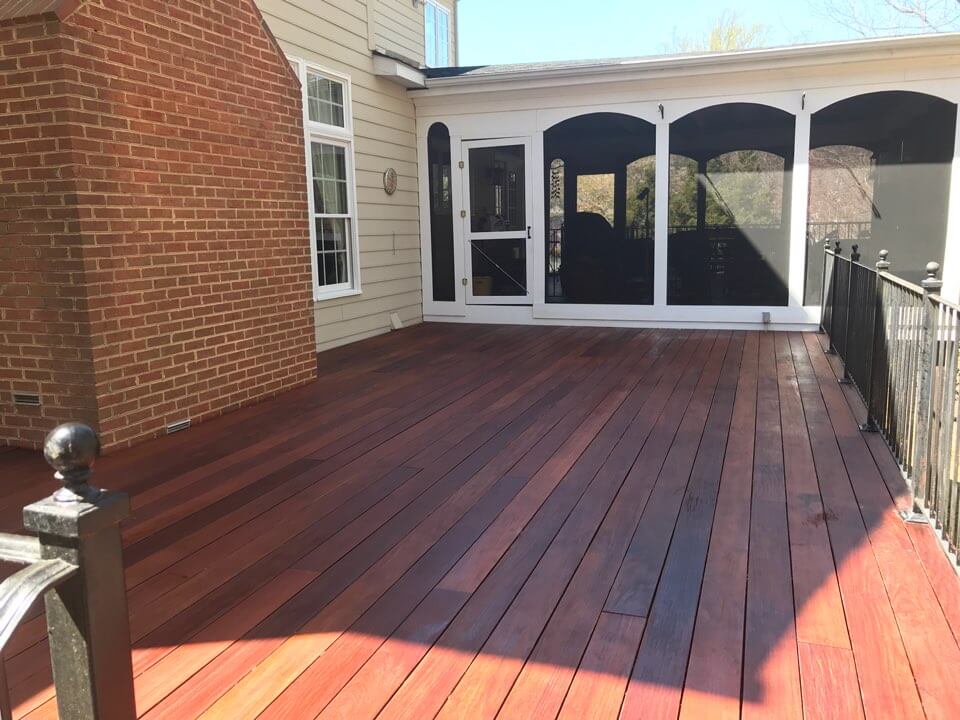Building a new deck is an exciting project that can enhance the beauty and functionality of your outdoor space. Choosing the right deck material is one of the most important decisions you’ll need to make. With so many options available, it can be overwhelming to determine which one is best for your needs. This article will guide you through selecting the perfect deck material for your new deck.
1. Understanding Your Options
When choosing the best deck material for your new deck, it’s important to understand your options. Several different types of deck materials are available, each with its unique characteristics and benefits. By understanding these options, you can make an informed decision that suits your needs and preferences.
One popular option for a deck material is wood. Wood decks have a classic and natural look that many people find appealing. There are different types of wood, such as cedar, redwood, and pressure-treated lumber. Each type of wood has its own durability and maintenance requirements, so it’s important to consider these factors when deciding.
2. Assessing Your Needs and Preferences
Consider your budget, durability requirements, and maintenance preferences to narrow down your options. Determine how much you’re willing to spend on your deck and how much time and effort you’re willing to invest in its upkeep. Additionally, think about the overall style and aesthetics you want to achieve with your deck.
3. Researching Decking Material Options
Now that you understand your needs and preferences better, it’s time to delve deeper into the specific deck material. Let’s explore the pros and cons of each option:
- Wood Decking: Wood is a classic and natural choice for decking. It offers a timeless appeal and can be stained or painted to match your desired look. However, wood requires regular maintenance to prevent rot, warping, and insect damage.
- Composite Decking: Composite decking is popular for its low maintenance requirements and long-lasting durability. Made from wood fibers and recycled plastic, composite decking is resistant to rot, fading, and staining. It’s available in various colors and styles, making it versatile.
- PVC Decking: PVC decking is known for its weather-resistant properties and ease of cleaning. It’s highly durable and doesn’t require staining or sealing. PVC decking is available in various colors and textures, allowing you to create a customized look for your deck.
4. Comparing Decking Materials
To make an informed decision, it’s important to compare the different deck material based on various factors:
- Cost Comparison: Consider each material’s initial investment and long-term expenses. While wood decking may have a lower upfront cost, it requires more maintenance over time. Composite and PVC decking, on the other hand, have higher initial costs but require minimal upkeep.
- Performance Comparison: Evaluate each material’s strength, resistance, and lifespan. Wood decking may be susceptible to rot and insect damage, while composite and PVC decking offers superior durability and resistance to the elements.
5. Making the Final Decision
It’s time to decide after weighing the pros and cons and considering all the factors. If you still need clarification, feel free to seek professional advice from a deck builder or contractor. They can provide valuable insights and help you choose the best decking material for your needs.
Why is it important to choose the right decking materials?
Choosing the right deck material is crucial when building a new deck. The deck material you select will impact not only your deck’s overall look and feel but also its durability and longevity. Here are a few reasons why it is important to choose the right deck material:
- Longevity: A deck is a significant investment, and you want it to last years. By selecting high-quality deck material, you can ensure that your deck withstands the test of time, resisting wear and tear, rot, and decay.
- Maintenance: Different decking materials require different levels of maintenance. Some materials, like composite decking, are low-maintenance and only require occasional cleaning. Others, like hardwoods, may need regular staining or sealing to keep them looking their best. Choosing the right materials can save you time and effort in the long run.
- Aesthetics: Your deck is an extension of your home and should reflect your style. The right decking materials can enhance the overall aesthetic appeal of your outdoor space, whether you prefer a rustic, natural look or a sleek, modern design.
- Functionality: Consider how you plan to use your deck. Will it be a space for entertaining, dining, or relaxation? Different materials have different properties that can affect their functionality. For example, wood decking provides a warm and natural feel, while composite decking offers excellent durability and resistance to moisture.
- Environmental Impact: If sustainability is important, choosing eco-friendly decking materials can make a significant difference. Look for materials made from recycled content or sourced from sustainable forests.
Choosing the best decking materials for installing a new deck requires careful consideration of your options, needs, and preferences. You can make an informed decision by understanding the pros and cons of each material and comparing them based on cost, performance, and environmental impact. Remember to seek professional advice if needed.
Contact True Decks
If you’re ready to create your dream deck, call True Decks at (240) 404-0207. Our team of experts is here to answer any questions and help bring your vision to life. Contact us today, and let’s get started on your custom deck design!




